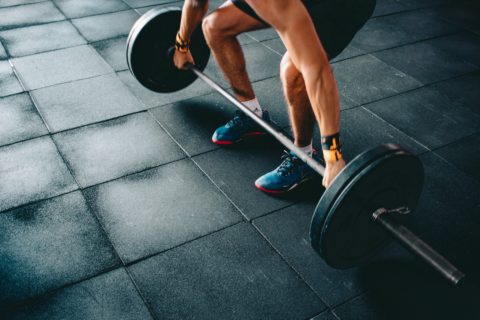The Blog
Strength Train To Improve Your Running
Posted 29 April 2019 in Therapies, Training

To improve your running, the answer isn’t just more miles, strength training can be the key to improving running economy, increasing power and preventing injury.
In a 2014 study it was shown that strength training in a group of runners had a number of positive effects. These included:
– Increasing anaerobic power to help maintain a higher intensity for a longer period
– Improved neuromuscular efficiency, meaning increased dynamic stability, reduced stiffness and more motor unit (muscle) recruitment
– Gains in muscle power, to improve final sprint performance
– Increase in running economy, meaning participants used less energy over the same distance.
And all of these improvements add up to better performance, new personal bests and reduced risk of injury.
Many runners don’t have much gym experience outside of running and lifting weights can be intimidating, but luckily the most beneficial strength exercises for runners tend to be the more simple, functional whole body exercises that most people can do. These include:
– Squats & Deadlifts. Starting with double leg variations and progressing to single leg variations that are more specific to the demands of running.
– Lunge
– Planks
– Push ups
– Plyometric exercises such as squat jumps, skipping, hopping and box jumps to improve the stretch shortening cycle of the joints in the lower limb, resulting in improved utilisation of elastic energy that is stored within the tendons and muscles with each stride.
Additionally, many runners may be fearful of gaining too much muscle mass, but this is highly unlikely, as running and weightlifting are at odds with each other in terms of the effect they have on muscle gain. While weightlifting and strength training is an anabolic activity, meaning it builds muscle, running is a catabolic exercise, meaning it stimulates the breakdown of muscle so it is very unlikely you will see huge gains in muscle bulk, but you will see significant improvements in strength!
If you want to improve your running performance and reduce the risk of injury while running, strength work is absolutely something you should be incorporating into your training. If you are unsure how or where to begin, your physiotherapist is ideally suited get you started on your journey to better running.
Beattie, K., Kenny, I. C., Lyons, M., & Carson, B. P. (2014). The effect of strength training on performance in endurance athletes. Sports Medicine, 44(6), 845-865.


